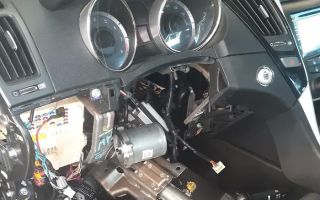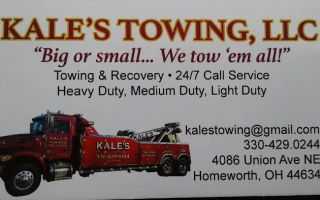How to Know if Your Tire is Too Worn Out for a Spare
Over the years, I’ve found myself in a number of situations where a flat tire was an unexpected inconvenience. Whether it was a nail on the highway or simply the wear and tear of daily driving, knowing when a tire is too worn out for a spare has been crucial. It’s easy to assume that a spare tire will always save the day, but that’s not always the case. In this article, I’ll share my experiences, insights, and the steps I take to assess whether a tire is too worn out to rely on the spare. After all, nobody wants to find themselves stranded with a flat tire and a spare that’s not up for the job.
1. Understanding Tire Wear: What Does "Worn Out" Really Mean?
When I first started driving, I didn’t fully understand the concept of tire wear. All I knew was that tires are supposed to last a long time, and that they’re important. However, over time, I’ve come to realize that a tire can be worn out long before it actually blows out. The tread on a tire plays a major role in how safely and efficiently it performs. As tires wear down, the tread becomes thinner, and they lose their ability to grip the road, especially in adverse conditions like rain or snow.
The key to understanding if your tire is too worn out is by inspecting its tread depth. Tread is the pattern on the surface of the tire that provides traction, and once it’s worn down, you lose that traction. The general rule of thumb is that when the tread depth falls below 2/32 of an inch, the tire is considered too worn out to be safe for driving. This is especially important when you’re thinking about replacing a flat tire with a spare—if your spare is in worse shape than your main tires, you could be setting yourself up for more problems.
2. Checking the Tread Depth: How to Do It Yourself
I’ve learned that checking the tread depth is something I can do on my own in just a few minutes. I don’t need to take the car into the shop every time I suspect tire wear. Here’s how I check:

MR. TIRE INC.
2078 New York Ave, Huntington Station, NY 11746, USA
Step 1: Use the Penny Test
One of the simplest methods I’ve used to check tire tread depth is the penny test. It’s as simple as it sounds: I grab a penny, insert it into the tire tread with Lincoln’s head facing down, and if I can see the top of his head, it means the tread is too shallow and the tire is no longer safe. I usually make sure to check multiple spots around the tire because wear isn’t always uniform.

Firestone Complete Auto Care
1933 N Placentia Ave, Fullerton, CA 92831, USA
Step 2: Use a Tread Depth Gauge
If I want a more precise measurement, I use a tread depth gauge. This tool is cheap, easy to use, and gives me an exact measurement of how much tread is left. It’s especially useful for keeping track of gradual wear over time. Some vehicles also come with a built-in tread wear indicator that makes it easy to spot when the tread is getting dangerously low.
Step 3: Look for Visible Damage
Sometimes, it’s not just the tread depth that concerns me—it’s also the condition of the tire itself. Over the years, I’ve learned that tires can get damaged from hitting potholes, sharp objects, or simply from old age. Cracks in the sidewall, bulges, or punctures can compromise the integrity of the tire, making it unsafe to use as a spare, even if the tread seems okay.
3. Is Your Spare Tire in Better Shape Than Your Main Tires?
There’s another crucial question that I always ask myself before I rely on a spare tire: is the spare tire in better shape than my main tires? I’ve experienced situations where my main tires were relatively worn, but my spare tire was so old and dry-rotted that it wouldn’t have been safe to use it on the road. Just because it’s a spare doesn’t mean it’s always ready to go.
Here’s what I’ve learned about spare tires:
Check the Age of Your Spare
The age of the spare tire is one of the most important factors I consider. Tires have a shelf life, and rubber degrades over time, even if the tire hasn’t been used. Most tires, including spares, should be replaced every six years or so, and definitely no later than ten years from the manufacture date. I make it a point to check the manufacture date, which is printed on the sidewall of the tire. If the tire is older than ten years, it’s time to get a new spare.
Inspect the Spare for Damage
Like with my main tires, I also inspect the spare for any visible damage. I check for cracks, cuts, or any signs of dry rot. Dry rot happens when the rubber becomes brittle and cracks due to exposure to the elements, and it’s a significant risk when it comes to spare tires that sit unused for long periods of time. If my spare has any damage, I won’t risk using it, no matter how good the tread looks.
4. When You Shouldn't Use a Worn Tire As a Spare
From personal experience, I’ve learned that there are times when using a spare tire—no matter how tempting—isn’t the right call. Even if the tread seems okay, there are specific situations where I should never use a worn tire as a spare:
1. When the Tread is Too Shallow
If the tread is worn down to the point that it’s below the safe minimum of 2/32 of an inch, the tire simply can’t grip the road properly, especially in wet or icy conditions. Using a worn tire as a spare in these conditions puts me at a higher risk of accidents, and that’s not worth the risk. I’d rather call for help than drive on a tire that’s too worn out.
2. When the Spare Tire is Too Old
Even if the spare looks fine on the surface, an old tire can still be dangerous. If the spare is more than ten years old, I don’t take chances. It’s crucial to remember that a spare tire, just like any other tire, can degrade over time. The rubber could be less flexible and more prone to blowouts or other failures.
3. When the Spare Tire is Different from the Rest of the Tires
Sometimes, my spare tire isn’t the same size or type as my regular tires. If that’s the case, I know it’s not safe to drive on it for long distances or at high speeds. The mismatched tire can throw off the balance of the car and cause damage to the drivetrain, especially if it's a full-size spare paired with smaller tires. In these cases, I use the spare only to get to a repair shop or a safe location, where I can replace it with a more suitable tire.
5. How to Handle the Situation If Your Spare is Not an Option
If I find myself in a situation where my spare tire is unusable, I’ve learned the hard way that it’s time to call for roadside assistance or a towing service. In these situations, I rely on professional help to tow my vehicle to a repair shop, where I can get a proper tire replacement.
Having a reliable towing service like Rescue & Towing on hand has saved me more than once. Whether it’s getting my car to a safe place or having a tire replaced, knowing I can rely on experts to handle the situation makes all the difference. I’ve used their services when my spare was too worn out, and they always respond quickly and professionally.
6. Conclusion: Know When to Act and When to Call for Help
Over the years, I’ve learned that knowing the condition of my tires—including my spare—is essential to ensuring I’m never stranded in an emergency. Whether I’m checking the tread depth or inspecting the spare for damage, taking the time to assess my tires gives me confidence that I can handle whatever comes my way on the road. However, when the time comes to call for help, I know I can rely on reliable towing services to get me out of a jam.
If you find yourself in a similar situation, make sure you know how to assess your tires and when to call for professional assistance. Having a plan in place and knowing your options can save you time, money, and most importantly, your safety.























